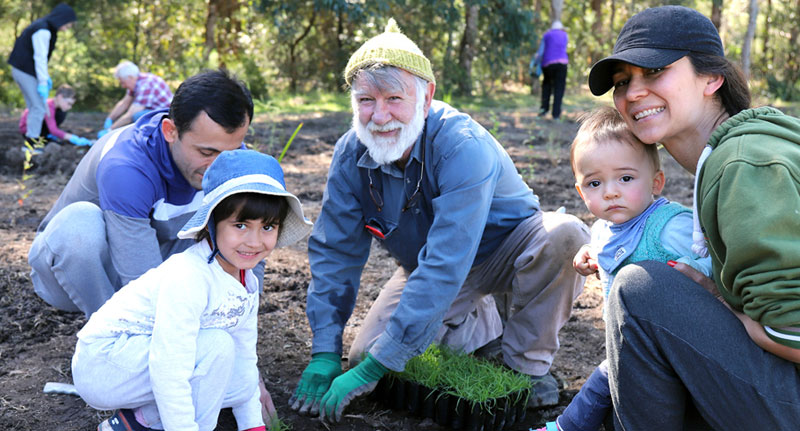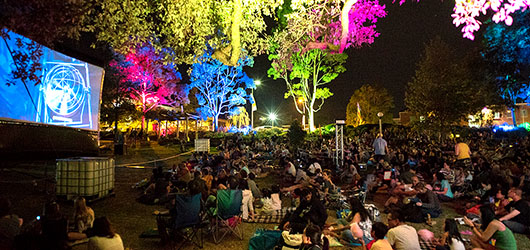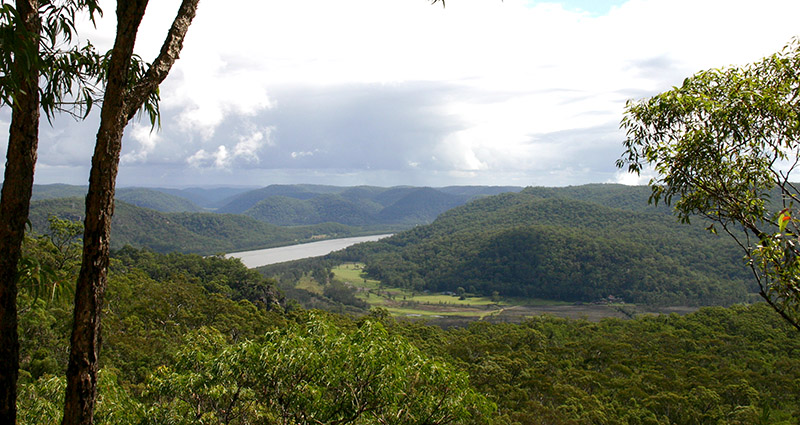Waste FAQs
Below is a list of our most frequently asked questions. If you can't find what you're looking for here phone Council’s Waste Hotline on 13 70 30.
You can find your collection dates using our Find My Collection Dates tool. You can also call Council’s Waste Hotline on 13 70 30
If your garbage, recycling or green waste bin hasn’t been collected please leave it out and our collection contractor will come back and collect it today or tomorrow.
Please make sure you report any missed bin collections to our Waste Hotline on 13 70 30 to ensure we are aware of the missed service and can advise the Contractor.
For more information on why your bin may not have been collected please read My bin was not collected. Why? below
Is your house the only house in the street where bins have not been collected? If so:
- You may have put the bin out too late or placed the wrong bin.
- The bin may be too heavy. Bins must not weigh more than 70kg.
- The driver may not have seen the bin due to an obstruction.
- The bin may have been contaminated (see What should I do with my waste?) or overfilled (please ensure the lid closes).
Please call Council’s Waste Hotline on 13 70 30 to have your bins collected once you have fixed the problem.
Please also note Council will only collect domestic waste and recycling bins it has provided. These have a coloured (red, yellow or bright green) lid and a Hornsby Shire Council logo on the front of the body of the bin.
The recycling in the yellow lid bin is currently taken to the Visy Materials Recovery Facility (MRF) at Smithfield where it is sorted.
Who sorts the recycling?
The truck unloads unsorted recycling (paper, plastics, glass, etc) onto conveyor belts and then the sorting process begins. Air jets are used to separate paper, regular magnets are used to pick up steel cans, eddie current magnets are used to repel aluminium into containers, while lasers identify and sort glass into different types and colours. Other materials are sorted by hand, such as items too contaminated for recycling (for instance plastic bags, large pieces of cardboard).
Once sorted, the materials are sent to specialist recycling plants.
What happens next?
Materials are treated and the resources are recovered in a number of different ways:
Glass bottles and jars
Glass is stockpiled and transported to a glass beneficiation plant where the glass is scanned for any impurities and carefully sorted to remove items such as pyrex, ceramics, china, bone, oven proof glass and any other products that will not melt down. Once melted down, the sorted glass is mixed with cullet (crushed glass) for remoulding back into the new bottles and jars. Glass can take up to 1000 years to breakdown in landfill but recycling glass only requires only 40 per cent of the energy necessary to make glass from sand.
Steel cans
Steel tins are baled and sold to recyclers to be remade into steel products and packaging. Steel is ‘detinned’ to remove the thin layer of tin and is then heated using a furnace and mixed with other recycled scrap metal.
The melted product is then poured into casters to make ingots. Steel is 100 per cent recyclable so these recycled steel ingots can be used to make new car bodies, cans, aerosols, bikes, BBQs, furniture and whitegoods.
Aluminium cans
Aluminium cans and aerosols are baled and sent to a processing plant, where they are heated and melted in a furnace.
The liquid metal is cast into ingots that are then rolled into sheets in a mill and sent to the manufactures to be made back into aluminium products such as can, aerosols, bikes, cars and even planes. Recycled aluminium is just as good quality as aluminium made straight from bauxite and is more environmentally friendly.
Paper and cardboard
Baled paper and cardboard is delivered to Visy’s recycling plant where it is shredded and mixed with water at high speed to create paper fibres. The pulp is passed through cleaning and screening equipment to remove plastic, dirt and staples and then heated to remove ink and glue and is treated with chemicals and heated to loosen the ink. The cleaned pulp is diluted with water and mixed with smaller amounts of paper making additives.
The paper is then turned into new paper and cardboard products. Recycled paper and cardboard can be used to make packaging, industrial paper, tissues, newspapers, insulations, kitty litter and moulded cartons for eggs and fruit.
Plastic containers
Plastic is baled and sent to recycling plants where it is shredded into small pieces and then washed. A floatation process separates plastics that may be mixed together due to lids being left on the products. Plastic is melted and stretched into strands, cooled, and cut into pellets or ground into powder. The plastic pellets and powders are sent to manufactures to be moulded and cast back into plastic products and packaging. Recycled plastic is used to make new bottles and containers, wheelie bins, guideposts, fence pickets, irrigation pipes and fleece jumpers.
The garbage in the red lid bin is currently taken to Clyde rail head where it is compacted into containers and railed down to a big hole in the ground about half way between Goulburn and Canberra (Woodlawn Bioreactor). The hole was left behind by a zinc, copper and lead mine, and since 2004 Veolia has been working to turn the contaminated site into one of Australia’s premier green energy facilities.
At Woodlawn our waste is processed in a way that maximises the production of biogas. This is used to generate electricity, and in the last 10 years over four million tonnes of waste has been turned into 34.5 million cubic metres of methane. The site currently exports enough power to meet the needs of over 6,000 homes per annum.
As significant as the bioreactor’s 6MW of electricity generation is, since 2011 it has been overshadowed by the output of 23 turbines generating 48.3MW, enough power to meet the needs of 23,000 homes.
Generating electricity produces a lot of heat. Waste heat from the generators is used to warm water to just the right temperature to keep Barramundi happy. Woodlawn’s aquaculture facility produces 2.5 tonnes of this highly sought after fish.
Green waste is currently delivered to Kimbriki Recycling and Waste Disposal Centre in Terrey Hills, where it is screened and processed by Australian Native Landscapes. It is mulched using a mechanical shredder and then composted to the Australian Standard. Processed compost and mulch is matured for 3-6 months before being sold to the public.
General Issues with the recycling and recovery of resources
- The issue of interstate transportation and landfill levies is not new. The solution is a harmonised approach to landfill levies across Australia, which need to be set at a high enough level to reflect the true cost of landfilling, and to encourage alternative recycling approaches.
- NSW has the highest levies, and it’s also investing the most back into the resource recovery sector, with over $800 million being returned from the levy. Meanwhile Queensland has one of the worst recycling rates in Australia.
- Stockpiling is a standard management practice for recyclers, until sustainable markets are found for recycled products.
- Recycling needs to be commercially viable, and can be achieved through the purchase of products that are made with recycled materials.
- Production of a high quality product free of contamination and a reduction in the use of virgin materials requires additional costs of re-processing such that we can actually utilise almost the entire recycled product.
No. They belong to Hornsby Shire Council and must remain at the property.
- If you are renting contact your real estate agent who will arrange a bin for you.
- If you own the property, please call Council’s Waste Hotline on 13 70 30.
Call Council’s Waste Hotline on 13 70 30 and we will organise to replace or repair your bin.
Yes, though this will attract an additional charge. For more information, click here.
Place bins one metre apart and two metres from any obstruction, such as a car or tree. Bring the bins back onto your property as soon as possible after collection.
The driver has probably gone to empty the truck and will return. If this has not occurred by 4pm please call Council’s Waste Hotline on 13 70 30.
This may be due to driver error or your street may have been blocked by vehicles or roadworks. If collection has not occurred by 4pm call Council’s Waste Hotline on 13 70 30 and a truck will return the following day.
Rubbish sometimes becomes compacted in the bottom of your bin and may not fall out when upturned. Loosen any remaining material and contact Council’s Waste Hotline on 13 70 30 to arrange the garbage truck’s return.
No. All items for collection must fit into the bins provided and the lid must close. If you need extra bins, click here.
Visit Planet Ark’s website, SUEZ website or visit your nearest Waste Management Centre.
Flattened cardboard boxes can be taken to the Thornleigh Community Recycling Centre or the Mount Kuring-gai Household Recycling Drop Off, free of charge.
Once collected, your recycling is taken to a material recovery facility in Sydney. The truck unloads unsorted recycling (paper, plastics, glass, etc) onto conveyor belts and then the sorting process begins. Air jets are used to separate paper, regular magnets are used to pick up steel cans, eddie current magnets are used to repel aluminium into containers, while lasers identify and sort glass into different types and colours. Other materials are sorted by hand, such as items too contaminated for recycling (for instance dirty steel cans or mouldy cardboard). Once sorted, the materials are sent to specialist recycling plants.
Hazardous waste include:
- Chemicals
- Needles and medical sharps
- Medicines
Read our Hazardous Waste page for ways to dispose of these items.
You can view specific information about your waste collection here.
For details visit the Bulky Waste Collection page or call Council’s Waste Hotline on 13 70 30.
You can view the maximum permitted volumes of bulky waste here.
At Council’s Waste Depot at 29 Sefton Rd, Thornleigh. However, first call 13 70 30 to ensure there is stock. For addition information visit Composting and Worm Farming.
Phone Council's Waste Hotline on 13 70 30 and we will arrange to have the bins removed. Once we have removed the bins, your waste service charges will be suspended until you request replacement bins.







